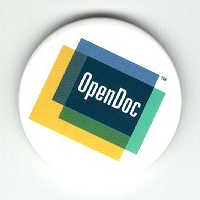View of Apple from an insider heading out


Alfke worked on the ill-fated OpenDoc project in the '90s and later developed the early iChat implementations as well as the Safari RSS interface.
In his blog post about going indie, Alfke said it was primarily "creative differences" over social networking that made him consider leaving.
Apple’s a very focused company, and that’s a strategy that’s worked well for the past ten years. I admire that, and I’m happy to be in a world where I don’t have to feel like a freak anymore for using a Mac in public. And overall, Apple’s core goals of elegant user interfaces and beautiful design are ones I am glad to contribute to.
But I’m fascinated with social software. Apple isn’t. Despite some promising starts, the most I’ve been able to get accomplished in that vein at Apple was iChat [the IM part; I’m really not interested in videoconferencing], Safari RSS, and the “PubSub” [which turned out to be “RSS and Atom”] framework. There were some very promising prototypes of sexier things, but I really can’t talk about those, other than to say that they were canceled.
However, he also complained about the lack of outside recognition offered to internal developers. While the communication inside the company is "reasonably open (modulo confidentiality issues)," Alfke said, the external communication was micro-managed.
It’s deeply ironic: For a company that famously celebrates individuality and Thinking Different, Apple has in the past decade kept its image remarkably impersonal. Other than the trinity who go onstage at press events — Steve Jobs, Jonathan Ive, Phil Schiller — how many people can you name who work for Apple? How many engineers?
... It wasn’t always this way. Apple was very open in the beginning, and treated the members of the original Mac team like rock stars, complete with photo layouts in Rolling Stone. Their signatures were engraved in the inside of the computer’s case. (Andy Herzfeld wrote a good article about this.)
Even in my early years there, applications’ “about boxes” proudly listed the names of the people who worked on them. The OS itself had semi-secret easter eggs that listed everyone’s name. The developer Tech Notes were bylined with the names of the individual engineers who wrote them. (Don’t scoff: the tech notes were great stuff, quirky and funny and individual. As a young Mac developer, just reading them gave me a great feeling about the company and made me want to work there.)
There was a marketing madness behind the cloak of utter secrecy that Steve Jobs wrapped around the company shortly after his return. In the past, Apple product managers and even vice presidents used the press to gain community support for pet projects that were on the block during reorganizations. When I was a reporter at MacWEEK, I encouraged this practice.
This all stopped with Jobs. His office would control the message, the flow of information about the company and its products, and the personalities. For the most part Apple employees now accept its restrictions. But as we can see in Alfke's blog, they don't have to like it.
More companies are adopting this model, including Microsoft, I understand. However, I will bet that few will have the success that Jobs and his branding police have had with Apple employees.
In one of the comments to the blog post, ex-Apple programmer Dave Carlton revealed an Easter egg in the Open Firmware code used on PowerPC-based Macs.
BTW, All the names of the Open Firmware team are in the code despite the edict to remove them until its demise. Drop into any PPC Mac Open Firmware and type ‘kudos’.